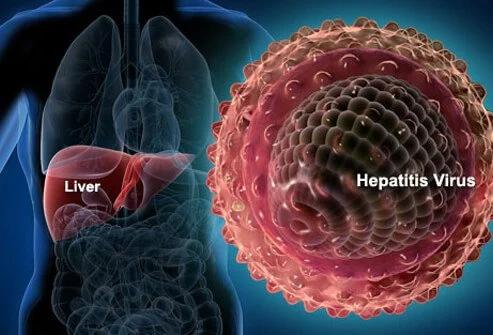Hepatitis, a significant global health concern, refers to the inflammation of the liver, a vital organ that processes nutrients, filters the blood, and fights infections. The disease can be caused by viruses, substances like alcohol and drugs, and other medical conditions. There are five main types of viral hepatitisvirus: A, B, C, D, and E, each caused by a different virus and varying in severity and treatment methods.
Understanding Hepatitis A
HAV is a highly contagious liver infection caused by the HAV, typically transmitted through ingestion of contaminated food or water or through direct contact with an infectious person. The disease is self-limiting and can range from a mild illness lasting a few weeks to a severe illness lasting several months. Fortunately, HAV can be prevented by vaccination and practicing good hygiene.
Exploring Hepatitis B
HBV is a serious liver infection caused by the HBV that can become chronic in some people and lead to liver failure, cancer, or cirrhosis. HBV is transmitted through contact with infectious body fluids, such as blood, vaginal secretions, or semen. While there is no cure for HBV, antiviral medications can help fight the virus and slow its ability to damage the liver.
Details on Hepatitis C
The Hepatitis C virus (HCV) causes an infection that can lead to severe liver damage if not treated. HCV is mainly spread through contact with the blood of an infected person. Treatments have significantly evolved over the past decades, and now, antiviral medications can cure up to 90% of HCV cases, dramatically improving the quality of life of those affected.
Hepatitis D Overview
Hepatitis D, also known as delta hepatitisvirus, is unique because it occurs only among individuals infected with Hepatitis B. The virus can be acute or chronic and is primarily spread through contact with infected blood. Treatments are limited; thus, the best approach is to prevent Hepatitis B infection through vaccination.
Hepatitis E Facts
HEV is a waterborne disease caused by the HEV. It is mostly found in areas with poor sanitation and typically results from ingesting fecal matter that contaminates water supplies. Although HEV is usually self-limiting, it can be severe, particularly in pregnant women.
Preventive Measures
Preventing viral hepatitisvirus involves vaccinations, particularly for types A, B, and E. Regular handwashing, avoiding contaminated water and food, and practicing safe sex are also crucial in preventing infection. Regular screenings and health checkups can help catch the disease early and prevent severe liver damage.
Living with Hepatitis
Living with hepatitisvirus requires managing symptoms and continuously monitoring liver health. Lifestyle changes, such as a modified diet and reduced alcohol intake, can help manage the condition. Support from healthcare providers and community resources can also play a significant role in improving the quality of life for those affected.
Innovations in Hepatitis Research
Recent years have seen significant advances in the treatment and management of hepatitisvirus, particularly with the development of new antiviral drugs for Hepatitis C. Ongoing research aims to find a cure for Hepatitis B and improve the efficacy of existing therapies.
Conclusion
Hepatitis remains a major health challenge globally, but progress in prevention, treatment, and awareness offers hope. Vaccination and education are key in combating the spread of the disease.

